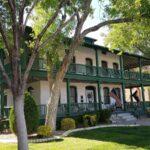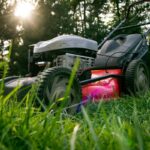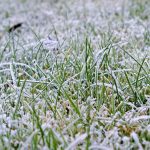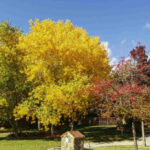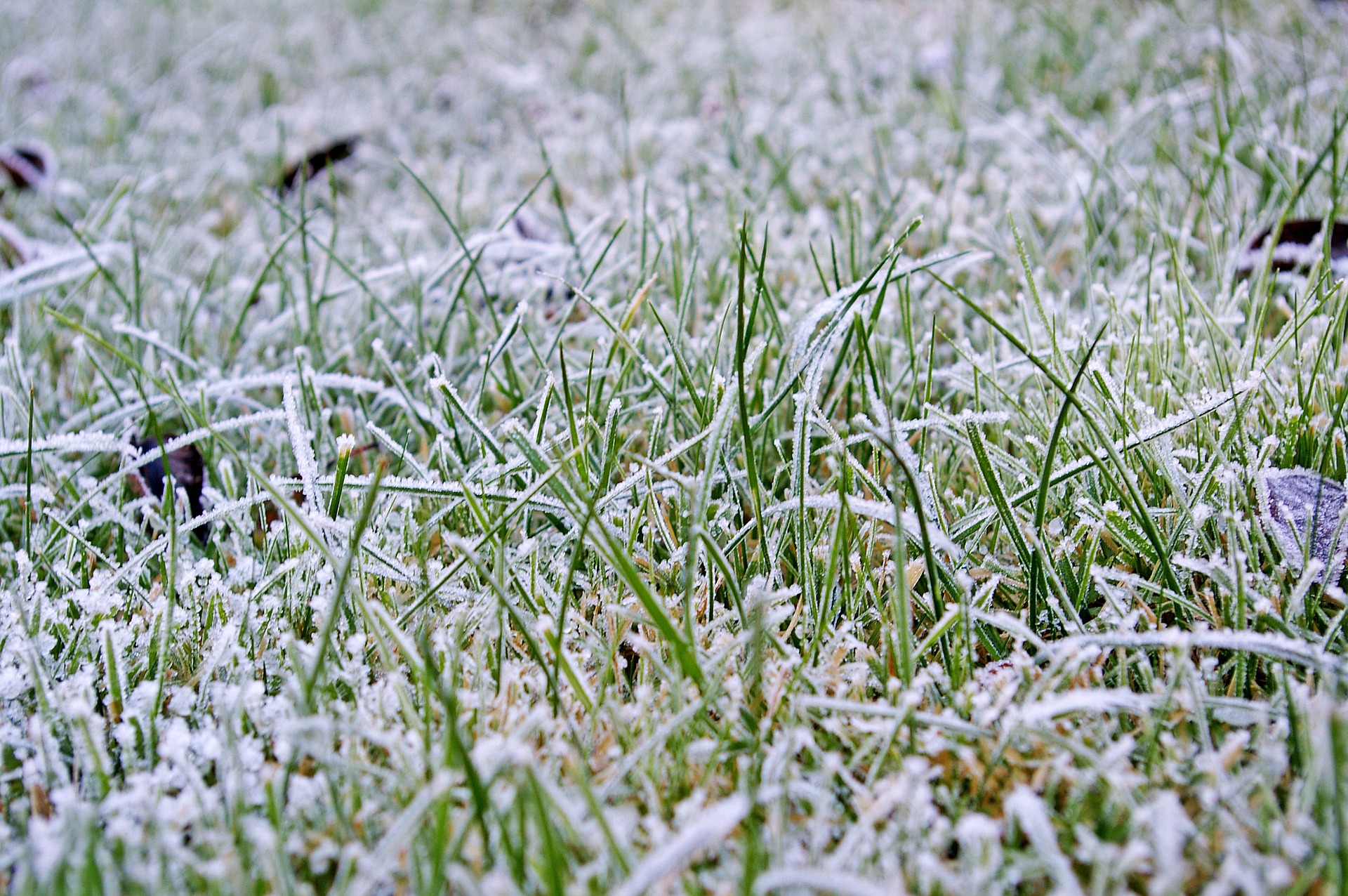
Welcome to the Sun City, where winter might not be the fiercest, but it can still pack a punch. With chilly temperatures and occasional frost, homeowners must still pay close attention to their lawns’ needs during the colder months. But fear not because, in this article, we’ve got you covered with our top nine winter lawn care tips for residents in El Paso.
From preparing the soil to mowing and watering, we have everything you need to keep your lawn in tip-top shape. So, whether you’ve lived in El Paso for decades or just moved to the city, join us and learn how to keep your lawn looking healthy all season long.
1. Keep Your Lawn Tidy
Raking up fallen leaves and removing debris, including kids’ and pet toys, is crucial to ensure your lawn remains healthy and beautiful throughout the colder months.
When leaves and debris accumulate on your lawn, they can suffocate the grass, making it vulnerable to fungal diseases. Not only does a buildup of debris threaten your lawn’s health, but it can also make it less aesthetically pleasing.
Regularly cleaning up your lawn allows it to breathe and absorb the sunlight and nutrients it needs to stay healthy. Plus, you’ll create a cleaner, tidier environment you and your family can enjoy.
2. Limit Foot Traffic
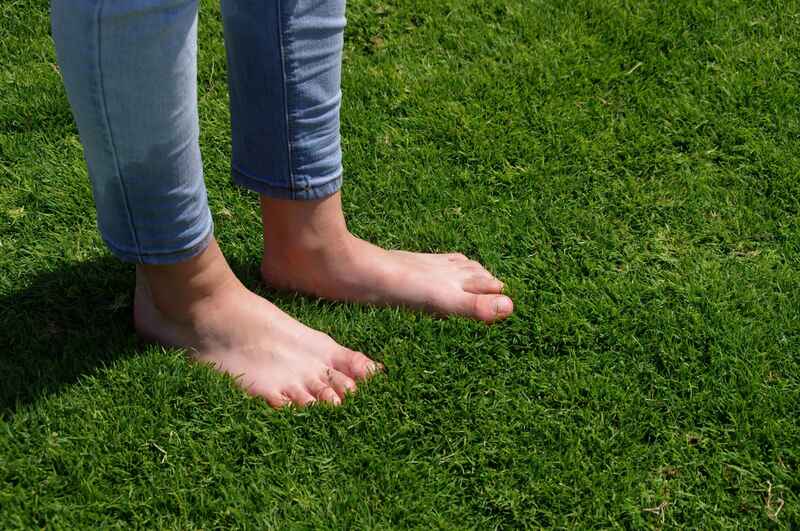
Limiting foot traffic on your lawn during winter is essential in El Paso to keep your grass healthy. Walking on the grass can lead to damage, soil compaction, and the need for aeration in late spring to summer.
Warm-season grasses common in the area, like Bermuda and Zoysia, are fragile and don’t recover as quickly from damage during colder months. So avoiding walking on the lawn during freezing temperatures is imperative since the grass is even more fragile.
If you need to be outside, consider using walkways or paths instead of walking on the grass. Furthermore, if you’re looking to host outdoor activities during winter, it’s best to do so on a patio instead of the lawn. This will help to prevent damage to your grass and keep it healthy for the next season.
3. Winter Mowing
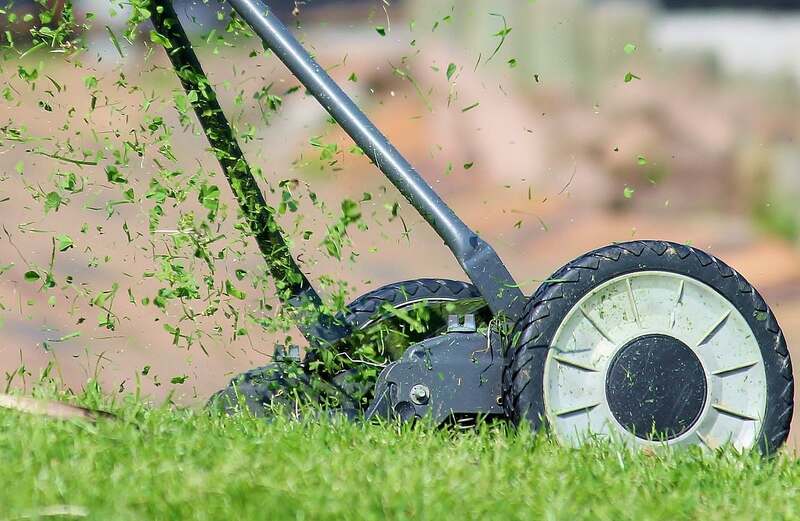
While warm-season grass goes semi-dormant during the colder months, it may continue to grow, albeit slower, especially in December. To keep your lawn healthy and attractive, continue mowing sparingly during the winter (up to the first freeze). Adjust your mowing height and mower blade settings to accommodate the slowed growth rate.
Once you notice it has stopped growing, it’s best to stop mowing until spring, when the grass grows again.
Pro Tip: If you followed our fall lawn care tips and overseeded your Bermudagrass with perennial ryegrass, you will need to keep mowing throughout the entire season.
Warning: Be careful not to scalp your lawn, as short mowing stimulates foliage growth to the detriment of root energy storage. Keep the grass at the recommended height.
4. Quench Your Lawn’s Thirst
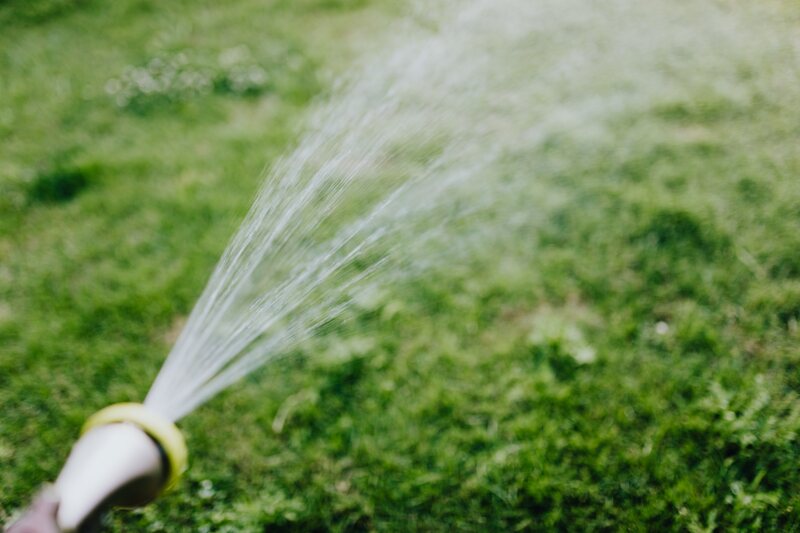
Watering your lawn once or twice a month during winter in El Paso is vital to maintaining a healthy lawn. While your grass may go dormant during this time, the root system does not, and it still needs water if the weather is dry or windy.
Well-watered plants can withstand freezing temperatures better, so staying updated with freeze dates and keeping your lawn well-hydrated before to help it survive the colder temperatures is essential.
Here are a few tips:
- Look for signs of dryness, such as grass blades folding up and wilting.
- Don’t overwater, as this can lead to mold.
- Avoid watering if the temperature drops below 40 F.
- Check El Paso’s watering schedule for current restrictions.
5. Tend to Your Irrigation System
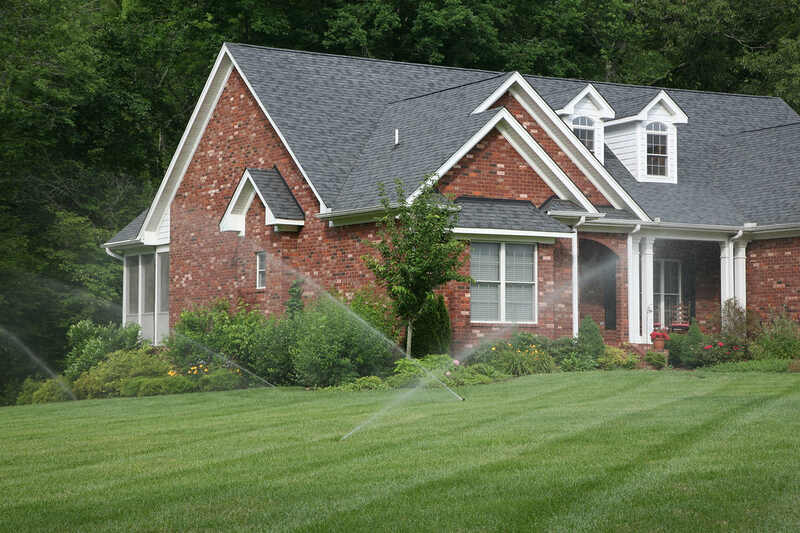
While El Paso winters may not be as harsh as in other parts of the country, preparing your irrigation system for the colder months is still important. One of the first things you can do is to add a freeze and rain sensor that will automatically turn the system off when temperatures drop below freezing or when it’s raining to help prevent overwatering.
Setting your sprinkler system on a winter watering schedule is also important (prior to freezing temperatures). During winter, your lawn doesn’t require as much water as it does in the summer, so you must adjust your watering schedule.
Note: You must winterize your sprinkler system before freezing temperatures hit. To do this, turn off the water supply and let the system drain out any remaining water. Then, disconnect the system from the water supply and cover any aboveground parts to protect them from the cold.
6. Battle Against Winter Weeds
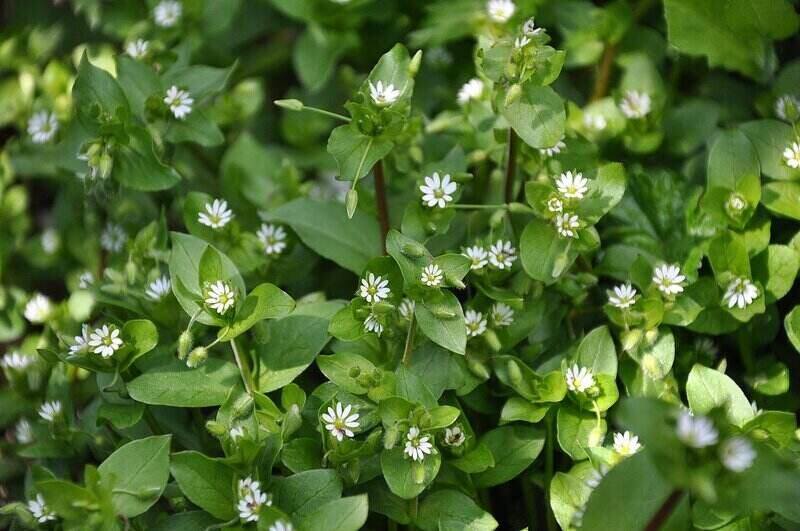
Photo Credit: Lazaregagnidze / Wikimedia Commons / CC BY-SA 4.0
Winter weeds can be a real nuisance for homeowners in El Paso. To keep your lawn looking healthy and beautiful during the colder months, it’s essential to take steps to prevent and control them.
One of the best ways to prevent winter weeds is by applying pre-emergent herbicides during fall. However, if some weeds still break through, weed control can be done with post-emergent herbicides or hand-pulling them to keep your lawn looking its best.
Common winter weeds in the El Paso area include:
7. Careful With Winter Feeding
It’s not recommended to fertilize your lawn during the winter months. Warm-season grasses, such as Bermudagrass, must be fertilized before their dormancy begins. The best time to apply the final fertilizer application to your lawn is during fall, around September, to ensure it has the necessary nutrients to sustain it through winter and prepare it for spring in El Paso
However, suppose you have overseeded your Bermudagrass with perennial ryegrass. In that case, you can fertilize it in December and again in February with 1/2 pound of nitrogen per 1,000 square feet. This will help keep your lawn healthy and vibrant throughout the winter months.
8. Prevent Lawn Diseases
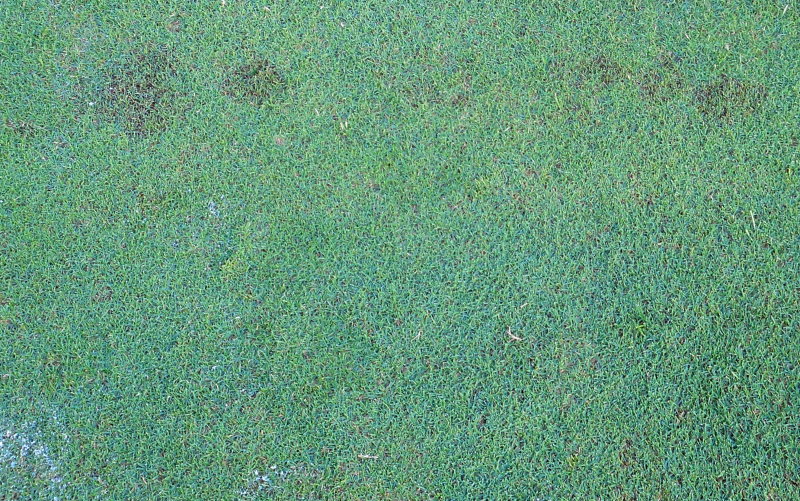
Photo credit: Scot Nelson / Flickr / Public domain
When the temperatures drop in El Paso, the likelihood of lawn diseases increases. These pesky diseases can wreak havoc on your lawn, causing unsightly and unhealthy patches that are tough to eliminate. Common winter lawn diseases in Texas include:
- Dollar spot
- Large patch
- Brown patch
- Take-all root rot
To prevent and manage lawn diseases during the winter months, it’s essential to take preventative measures. This means avoiding watering in the evening and not overwatering, as moist environments allow these diseases to flourish.
It’s also essential to keep an eye out for any signs of lawn diseases, such as circular or irregular patches of brown grass or grass that can be easily pulled up from the ground. If you notice those signs, avoid walking or mowing over the area so the disease doesn’t spread. Instead, consider aerating and treating with fungicides in spring.
9. Mulch Plant Beds
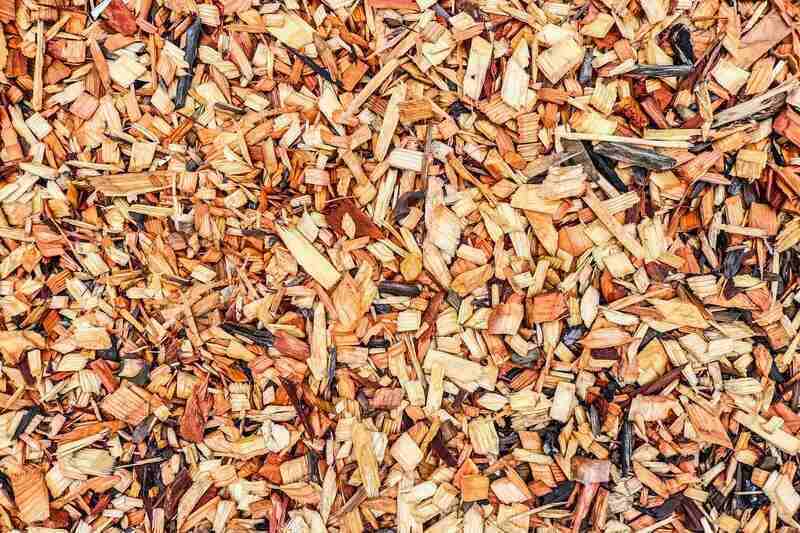
Mulching your plant and flower beds during the winter months in El Paso is an essential aspect of winter lawn care that is often overlooked. Mulch comes in various types, including:
- Wood chips
- Sawdust
- Grass clippings
- Shredded leaves
While you can buy mulch at a relatively low price ($2 to $5.50 per bag), you can also use lawn grass clippings and shredded leaves as free mulch for your plant beds. These materials can help retain soil moisture, prevent winter weeds from emerging, and protect your plants from colder temperatures, keeping them healthy and vibrant.
In addition to its protective qualities, mulch can add nutrients to your soil as it decomposes over time. This can help improve soil health and promote better plant growth when spring arrives.
FAQ About Winter Lawn Care Tips
There are several lawn maintenance steps you can take to prevent brown patches from occurring:
● Aerate your lawn to improve soil drainage and increase air circulation.
● Dethatch to remove any dead grass and debris buildup and dry out the fungus.
● Reduce your watering schedule to prevent overwatering.
● Improve drainage in lawn areas prone to standing water, such as low-lying or near downspouts.
● Avoid mowing over the location of the brown patch, as this can further damage the grass and spread the fungus.
When choosing the best grass for your lawn in El Paso, you must consider the hot and dry climate of the area. Warm-season grasses are the best option for this region, as they can withstand intense heat and occasional droughts.
Some of the best warm-season grasses for El Paso include:
● Zoysiagrass
● Bermudagrass
● Buffalograss
Keeping your grass green during the winter in Texas can be challenging, especially with the colder temperatures and reduced rainfall. While most warm-season grasses go dormant during this time, there are steps you can take to extend the green period of your grass.
● Fertilize your lawn in the fall before temperatures drop too much to provide your grass with the necessary nutrients to stay healthy during winter.
● Water your lawn appropriately and avoid watering when temperatures are below freezing.
● Rake leaves and debris from your yard regularly to prevent them from suffocating your grass and making it vulnerable to fungal diseases.
● Consider overseeding with cool-season grasses such as perennial ryegrass if you have Bermudagrass to extend its green period.
● Consider applying grass paint when your lawn goes into dormancy.
Final Thoughts
El Pasoans are fortunate to experience mild winters that don’t require them to shovel snow or deal with other harsh winter conditions that residents of other states face. However, this doesn’t mean you can neglect lawn care during the colder months.
By following the winter lawn care tips outlined in this article, you can help protect your lawn from damage caused by winter. But you don’t have to tackle winter lawn care alone. Contacting an El Paso lawn care professional can help ensure your lawn receives the best possible care during the colder months.
Main Image Credit: Pixabay
